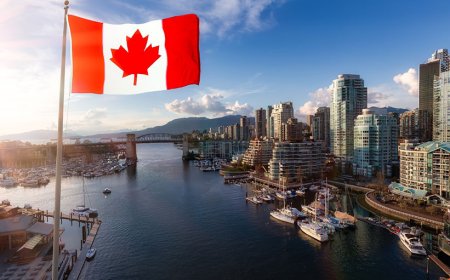IRCC Grants Work Permit Extensions for PNP Candidates | Canada Immigration News
Canada’s Immigration Minister, Marc Miller, has sanctioned Manitoba’s plea to extend temporary resident status for certain nominees identified in the province's Provincial Nominee Program (PNP).

Immigration Refugees and Citizenship Canada (IRCC) states that these nominees, mainly Post Graduation Work Permit (PGWP) holders, have work permits expiring in 2024 and are in the pool for Manitoba Skilled Worker Program, aimed at filling key job vacancies within the province.
The measure allows 6,700 temporary workers to continue working while the province processes their PNP application. Manitoba expects eligible foreign nationals to receive official nominations and eventually become permanent residents within two years.
IRCC expresses willingness to collaborate with other provinces and territories to transition more temporary residents into permanent residents, addressing national labor market needs, with more information expected after the Federation of Ministers Responsible for Immigration (FMRI) meeting on May 10.
Manitoba’s PNP
Manitoba pioneered the PNP in 1998 to attract newcomers who might otherwise settle in major urban centers like Toronto or Vancouver, subsequently adopted by all provinces and territories except Quebec and Nunavut.
In 2023, 10,000 people in Manitoba transitioned from workers to permanent residents.
From January to March this year, the province issued 1,560 Expressions of Interest to Skilled Worker candidates, resulting in 1,478 approvals.
IRCC data from 2022 shows 20% of permanent resident admissions came through the PNP, with Canada targeting 110,000 new permanent residents by 2024 end, and 120,000 annually in 2025 and 2026.
Changes to Temporary Resident Levels
This measure aligns with Minister Miller's intention to transition more temporary residents to permanent status, announced on March 21, rather than increasing the uncapped number of temporary residents. In 2023, Canada's temporary resident population exceeded 2.5 million, or 6.2% of the total population, with 157,000 transitioning to permanent status.
These changes come amid Canada's challenges with housing affordability, healthcare strains, and a high cost of living, with polls in 2023 showing decreased support for high levels of immigration.
What's Your Reaction?
 Like
0
Like
0
 Dislike
0
Dislike
0
 Love
0
Love
0
 Funny
0
Funny
0
 Angry
0
Angry
0
 Sad
0
Sad
0
 Wow
0
Wow
0






































































